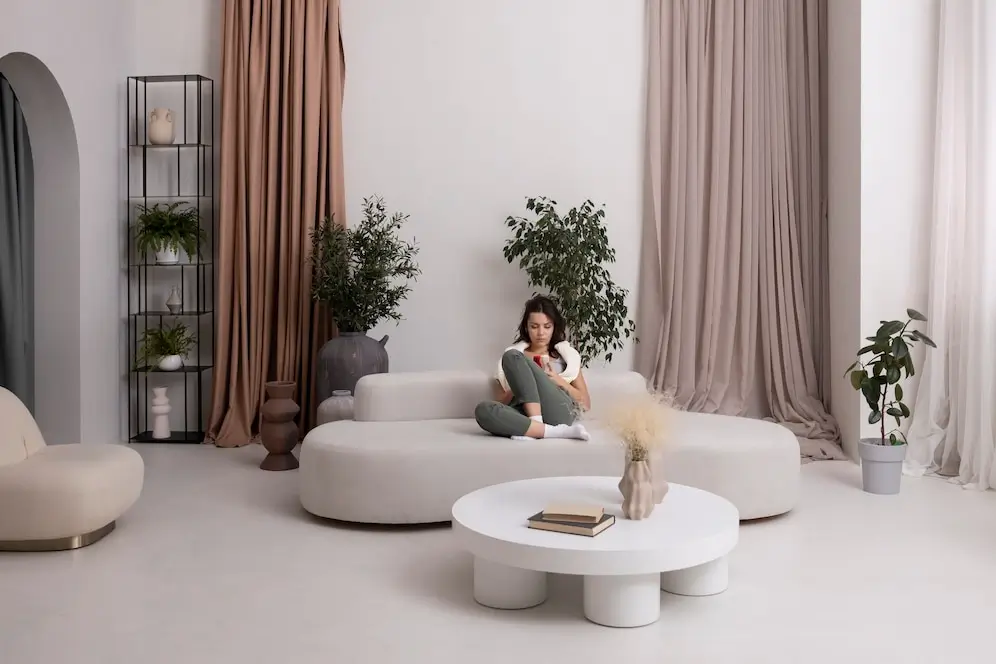The Transformative Power Of Embracing Minimalistic Living
In a world inundated with consumerism and a relentless pursuit of more, the concept of minimalistic living has emerged as a refreshing and transformative lifestyle choice.
Table of Contents
Minimalism transcends mere aesthetics; it is a philosophy that advocates for intentional living, focusing on what truly matters while shedding the excess. This article delves into the essence of minimalistic living, exploring its principles, benefits, and practical tips for embracing a life of simplicity and purpose.
The Principles of Minimalistic Living:
- Decluttering and Simplification: At the core of minimalistic living lies the principle of decluttering. This involves evaluating our possessions and retaining only those that bring genuine value or joy. Simplifying our living spaces not only fosters a sense of order but also reduces the mental burden associated with managing excess belongings.
- Intentional Consumption: Minimalism encourages a shift from mindless consumerism to intentional consumption. This involves making thoughtful decisions about what we bring into our lives, whether it be material possessions, relationships, or experiences. By focusing on quality over quantity, individuals can cultivate a more meaningful and fulfilling existence.
- Embracing Essentialism: Essentialism, a concept closely aligned with minimalistic living, emphasizes identifying and prioritizing the essential aspects of life. By concentrating on the things that truly matter, individuals can allocate their time, energy, and resources more effectively, leading to a more purposeful and balanced life.
Benefits of Minimalistic Living:
- Increased Mental Clarity: A clutter-free environment contributes to mental clarity. Minimalistic living allows individuals to escape the distractions of excess possessions, creating a space where the mind can relax and focus on what truly matters.
- Financial Freedom: By adopting a minimalistic lifestyle, individuals often find themselves spending less on unnecessary items. This can lead to increased savings and financial freedom, allowing for a more intentional allocation of resources towards experiences and pursuits that align with personal values.
- Environmental Impact: Minimalistic living promotes sustainability by discouraging the excessive production and disposal of goods. Choosing to own fewer possessions and favoring high-quality, long-lasting items can contribute to a reduction in one’s ecological footprint.
- Improved Relationships: Minimalism extends beyond material possessions to encompass relationships and commitments. By focusing on meaningful connections and letting go of toxic associations, individuals can cultivate deeper, more fulfilling relationships with others.
Practical Tips for Embracing Minimalistic Living:
- Start Small: Embarking on a minimalistic lifestyle can be overwhelming. Begin by decluttering one room at a time, evaluating each item’s significance and necessity.
- Mindful Consumption: Before making a purchase, consider its impact on your life. Ask yourself if the item aligns with your values and if it genuinely adds value to your daily existence.
- Digital Minimalism: Extend minimalistic principles to the digital realm. Declutter your digital devices, unsubscribe from unnecessary email lists, and limit screen time to enhance focus and productivity.
- Quality Over Quantity: Prioritize quality when making purchases. Invest in items that are durable, versatile, and bring lasting joy, reducing the need for frequent replacements.

Conclusion:
Minimalistic living is not a one-size-fits-all approach; rather, it is a customizable journey towards intentional and purposeful living.
Embracing minimalism liberates individuals from excess, fostering a more meaningful, sustainable, and fulfilling life. In a world that often equates success with accumulation, minimalistic living serves as a powerful reminder that true abundance lies in the simplicity of a well-curated life.

